
THE SCIENCE AND ART OF INTELLIGENT SYSTEMS
Editor: Jennifer Donovan
Design & Illustration: Michael Lewy
Writers: Grace Chua
Katie DePasquale Greta Friar
Photos of LIDS Student Conference provided courtesy of Francisco Jaimes. Photo of John Tsitsiklis by Donna Coveney. Photography credits:
Massachusetts Institute of Technology Laboratory for Information and Decision Systems
77 Massachusetts Avenue, Room 32-D608
Cambridge, Massachusetts 02139
http://lids.mit.edu/ send questions or comments to lidsmag@mit.edu
A Message from the Outgoing Director
It is my pleasure to introduce the latest issue of LIDS|All.
The period covered by this issue was an extraordinary one. We began in the fall of 2019 with the very successful LIDS@80: A Celebration, an event that brought together over 400 people from around the world, to commemorate the lab’s 80th anniversary. (You can read more, and see some wonderful event photos, later in this issue.) For me, the LIDS@80 event was also a rare opportunity to see much of the LIDS community in one place — a truly special occasion that spanned disciplines and generations, and highlighted once again the warmth, energy, and intellectual depth of our community.
In January 2020, with the same forward-looking spirit showcased at our anniversary event, LIDS officially joined the MIT Stephen A. Schwarzman College of Computing, MIT’s investment in the future of computing and AI. It is a development that keeps LIDS at the center of some of the most important current developments in the information and decision sciences, and a signal of the continued importance of LIDS-style research. This idea was summed up well in remarks by Dan Huttenlocher, dean of the college, who said, “With regards to LIDS and the intellectual fabric of the world today, I think the time couldn’t be more exciting.”
The LIDS community carried this excitement even in the spring of 2020, when we saw the emergence of the Covid-19 pandemic. We were fortunate that we could take most of our work to the virtual world with relative ease. As events and research collaborations moved to Zoom, it was comforting to see our community meet the challenges of the pandemic together, and that its cohesion, energy, and vibrance was not diminished. Students, faculty, staff, and researchers continued their work from a distance, and
ABOUT LIDS
The Laboratory for Information and Decision Systems (LIDS) at MIT, established in 1940 as the Servomechanisms Laboratory, currently focuses on four main research areas: communication and networks, control and system theory, optimization, and statistical signal processing. These areas range from basic theoretical studies to a wide array of applications in the communication, computer, control, electronics, and aerospace industries.
many were involved in projects driven by the Covid-19 pandemic.
This past year, we also lost a dear friend and mentor, MIT Electrical Engineering and Computer Science Professor Emeritus Michael Athans, who passed away in May 2020. A remarkable researcher and educator — and a transformative director of the lab — it is hard to overstate the influence Michael had on the field of systems control theory. We were honored to host his virtual memorial, celebrating his life and achievements, and sharing memories of his strength, kindness, and sharp wit.
In this issue you will read more about Michael, and the ways he laid the foundations for the LIDS of today. You will also read about graduate student Manon Revel’s work investigating the effect of online advertising on trust in journalism; LIDS Financial Coordinator Yalan Yang; faculty member Cathy Wu’s research applying signals and systems thinking to integrating autonomous vehicles in the transportation system; and graduate student Alireza Fallah’s work on personalized federated learning.
By this time, my tenure as director has come to a close, and this is my last introduction to LIDS|All. Holding this position, in a lab that has been my home for more than forty years, has been a tremendous honor and privilege. On this occasion, I would like to thank Professor Eytan Modiano who served as Associate Director, and then as Interim Director when I stepped down at the end of 2020. I am thrilled that Associate Professor of Aeronautics and Astronautics, Sertac Karaman, (a LIDS alum and faculty member) has taken the helm, in July of 2021. LIDS is as strong as ever, and in good hands!
I hope you enjoy this issue of the magazine and that it finds you healthy and safe.
Sincerely,

John N. Tsitsiklis
LIDS is truly an interdisciplinary lab, home to over 100 graduate students and post-doctoral associates from EECS, Aero-Astro, and the School of Management. The intellectual culture at LIDS encourages students, postdocs, and faculty to both develop the conceptual structures of the above system areas and apply these structures to important engineering problems.

MAKING SENSE OF INFORMATION
By Greta Friar
As a student in LIDS and in the MIT Institute for Data, Systems, and Society (IDSS), Manon Revel has been investigating how advertising in online publications affects trust in journalism. The topic area is familiar for Manon— growing up, she wanted to be a journalist to follow in her father’s footsteps. As a teenager, Manon was assigned her first reporting gig covering a holiday firework display for the local radio station near her home on the Atlantic coast of France. Manon researched every one of the dozens of types of fireworks that would be launched and spent hours interviewing the person who would launch them before reporting live on the night. Manon continued reporting for radio and print (she started a high school newspaper that is still active), using the same thorough approach to prepare for each interview.
“I wanted to ask interesting people questions that they had never been asked before, so I read everything I could on them beforehand and then I tried to learn something new,” Manon says.
However, in France, students must narrow in on a field of study by the end of their secondary schooling, and Manon ultimately chose to focus on science—a field in which her penchant for meticulous research and love of discovery would be well served. She completed a bachelor’s and master’s degree in engineering and applied mathematics at École Centrale
Paris while pursuing other interests, including journalism, on the side. As she considered what to do next, Manon sought out a more interdisciplinary opportunity, and discovered that at MIT—in particular at LIDS and in the Master’s Program in Technology and Policy (TPP) at IDSS.
“I always felt like I had these different lives. Coming to MIT was the first time I felt that my interests could finally be put together, and that I could work on everything in unison,” Manon says.
Manon only intended to come for a master’s degree, but she loved the environment and the people so much that she stayed on for a PhD. She joined the new Social & Engineering Systems (SES) doctoral program within IDSS, which combines tools and methods from statistics and information sciences, engineering, and social sciences to tackle significant societal problems. It was the exact sort of interdisciplinary opportunity Manon had been seeking. She works with four academic advisors: Prof. Ali Jadbabaie (Department of Civil and Environmental Engineering), Prof. Dean Eckles (Sloan School of Management), Prof. Adam Berinsky (Department Political Science), and Prof. Munther Dahleh (Department of Electrical Engineering and Computer Science and director of IDSS). Though operating in the middle of their fields has sometimes been challenging—like having to speak four different
languages, Manon says—she’s been thrilled with the opportunities to combine the approaches of disparate disciplines in order to build on all of them and push beyond the boundaries of previous research.
The timing of Manon’s arrival, shortly after the 2016 United States presidential election, was perfect for a deep dive into journalism from an analytical perspective. Current events had underscored the importance of understanding how information is, for better and worse, disseminated in the digital era and made sense of by the people receiving it. Manon’s main project, together with fellow LIDS student Amir Tohidi, has been investigating the effect of clickbait ads on reader trust.
As publications have struggled with online revenue models, many have come to increasingly rely on “native ads” that are designed to blend in with news stories and are often supplied by a third-party network. The majority of these ads are clickbait, which Manon and her colleagues define as “something (such as a headline) designed to make readers want to click on a hyperlink especially when the link leads to content of dubious value or interest.” Manon wanted to quantify exactly how prevalent clickbait is, so she set up a Bayesian text classification program to recognize it. The AI was trained off of two testing sets labelled by users on Amazon’s Mechanical Turk service. Then, Manon scraped over 1.4 million ads from the
time period 2016-2019, and, using her text classification program, found that more than 80% were clickbait. Next, Manon ran two large-scale randomized experiments, which showed that one-time exposure to clickbait near an article could negatively impact readers’ trust in the article and publication. That effect was driven by medium-familiarity publications — defined as outlets recognized by 25-50% of the audience. On the contrary, the ads effect on the most well-known outlets, like CNN and Fox News, was found to be null.
Manon hopes that the project will raise awareness among journalism publications of the risk of losing readership in the long term in order to reap the short-term financial rewards of native advertising. She acknowledges that there’s not an easy solution, as publishers may not be able to afford losing the revenue. However, reader trust in high quality journalism is a crucial issue in a time of rampant “information disorder,” which is the umbrella term that researchers like Manon use to describe the combination of intentionally or maliciously false information, unwittingly shared misinformation, and true but harmful information that spreads like wildfire through the internet.
Recently, Manon has been working on several other projects that combine approaches across disciplines to quantify and decipher human behavior, with a focus on understanding the ways that people make sense of information
and how that impacts their voting decisions. She has been working with sociologists on a project about how audiences’ perception of the news resonates with media coverage. Another project is modeling a voting system where votes may be delegated to better-informed acquaintances.
One could imagine that so much time spent thinking about Manon’s chosen research topics—politics, journalism, untruths—could be draining, but Manon tries not to get drawn into the strong emotions that these subjects can provoke. She sees the goal of her work as understanding, rather than judging, how people think and behave. At the same time, in an occupation focused on information disorder, perhaps it is no surprise that one of the things Manon appreciates most about her colleagues is their authenticity. This, along with their willingness to admit what they don’t know, made it easy to stay on at LIDS and IDSS after her master’s, she says. It’s a wonderful environment in which Manon can do what she has always loved, which is to learn everything she can about a subject—whether fireworks, clickbait, or human behavior—and, now aided by the many scientific approaches she has acquired, try to discover something new.


THE PROMISE OF AUTONOMOUS VEHICLES
By Grace Chua
There’s a mesmerizing video animation on YouTube of simulated, self-driving traffic streaming through a six-lane, four-way intersection. Dozens of cars flow through the streets, pausing, turning, slowing and speeding up to avoid colliding with their neighbors. And not a single car stopping. But what if even one of those vehicles was not autonomous? What if only one was?
In the coming decades, autonomous vehicles will play a growing role in society, whether keeping drivers safer, making deliveries, or increasing accessibility and mobility for elderly or disabled passengers.
But, Prof. Cathy Wu argues, autonomous vehicles are just part of a complex transport system that may involve individual self-driving cars, delivery fleets, human drivers, and a range of last-mile solutions to get passengers to their doorstep – not to mention road infrastructure like highways, roundabouts and, yes, intersections.
transportation system? Equally important, how can we use this understanding to guide us towards better-functioning systems?
Cathy, who joined LIDS and MIT in 2019, is the Gilbert W. Winslow Assistant Professor of Civil and Environmental Engineering as well as a core faculty member of the MIT Institute for Data, Systems, and Society. Growing up in a Philadelphia-area family of electrical engineers, Cathy sought a field that would enable her to harness engineering skills to solve societal challenges.
During her undergraduate years at MIT, she reached out to Professor Seth Teller of CSAIL to discuss her interest in self-driving cars.
Teller, who passed away in 2014, met her questions with warm advice, said Cathy. “He told me, ‘If you have an idea of what your passion in life is, then you have to go after it as hard as you possibly can. Only then can you hope to find your true passion.’
Transport today accounts for about a third of US energy consumption. The decisions we make today about autonomous vehicles could have a big impact on this number — ranging from a 40 percent decrease in energy use to a doubling of energy consumption.
So how can we better understand the problem of integrating autonomous vehicles into the
“Anyone can tell you to go after your dreams, but his insight was that dreams and ambitions are not always clear from the start. It takes hard work to find and pursue your passion.”
Chasing that passion, Cathy would go on to work with Teller, as well as in Professor Daniela Rus’s Distributed Robotics Lab, and finally as a graduate student at University of Califor-
nia, Berkeley, where she won the IEEE Intelligent Transportation Systems Society’s best PhD award in 2019.
In graduate school, Cathy had an epiphany: she realized that for autonomous vehicles to fulfill their promise of fewer accidents, time saved, lower emissions, and greater socioeconomic and physical accessibility, these goals must be explicitly designed for, whether as physical infrastructure, algorithms used by vehicles and sensors, or deliberate policy decisions.
At LIDS, Cathy uses a type of machine learning called reinforcement learning to study how traffic systems behave, and how autonomous vehicles in those systems ought to behave to get the best possible outcomes.
Reinforcement learning, which was most famously used by AlphaGo, DeepMind’s human-beating Go program, is a powerful class of methods which capture the idea behind trialand-error — given an objective, a learning agent repeatedly attempts to achieve the objective, failing and learning from its mistakes in the process.
In a traffic system, the objectives might be to maximize the overall average velocity of vehicles, to minimize travel time, to minimize energy consumption, and so on.
When studying common components of traffic
networks such as grid roads, bottlenecks, and on- and off-ramps, Cathy and her colleagues have found that reinforcement learning can match, and in some cases exceed, the performance of current traffic control strategies. And more importantly, reinforcement learning can shed new light towards understanding complex networked systems -- which have long evaded classical control techniques. For instance, if just five to ten percent of vehicles on the road were autonomous and used reinforcement learning, that could eliminate congestion and boost vehicle speeds by 30 to 140 percent. And the learning from one scenario often translates well to others. These insights could one day soon help to inform public policy or business decisions.
In the course of this research, Cathy and her colleagues helped improve a class of reinforcement learning methods called policy gradient methods. Their advancements turned out to be a general improvement to most existing deep reinforcement learning methods.
But reinforcement learning techniques will need to be continually improved to keep up with the scale and shifts in infrastructure and changing behavior patterns. And research findings will need to be translated into action by urban planners, auto makers and other organizations.
Today, Cathy is collaborating with public agencies in Taiwan, and Indonesia to use insights
from her work to guide better dialogues and decisions. By changing traffic signals or using nudges to shift drivers’ behavior, are there other ways to achieve lower emissions or smoother traffic?
“I’m surprised by this work every day,” Cathy said. “We set out to answer a question about self-driving cars, and it turns out you can pull apart the insights, apply them in other ways, and then this leads to new exciting questions to answer.”
Cathy is happy to have found her intellectual home at LIDS. Her experience of it is as a “very deep, intellectual, friendly, and welcoming place.” And she counts among her research inspirations MIT course 6.003 Signals and Systems — a class she encourages everyone to take — taught in the tradition of Prof. Alan Oppenheim (RLE) and Prof. Alan Willsky (LIDS). “The course taught me that so much in this world could be fruitfully examined through the lens of signals and systems, be it electronics or institutions or society,” she said.
“I am just realizing as I’m saying this, that I’ve been empowered by LIDS thinking all along!”
Research and teaching through a pandemic haven’t been easy, but Cathy is making the best of a challenging first year as faculty. (“I’ve been working from home in Cambridge – my short walking commute is irrelevant at this point,” she said, wryly.) To unwind, she enjoys run-
ning, listening to podcasts covering topics ranging from science to history, and reverseengineering her favorite Trader Joe’s frozen foods.
She’s also been working on two COVID-related projects born at MIT: one explores how data from the environment, such as data collected by IoT connected thermometers, can help identify emerging community outbreaks. Another project asks if it’s possible to ascertain how contagious the virus is on public transport, and how different factors might decrease the transmission risk.
Both are in their early stages, Cathy said. “We hope to contribute a bit to the pool of knowledge that can help decision-makers somewhere. It’s been very enlightening and rewarding to do this and see all the other efforts going on around MIT.”
TEACHING MACHINES
By Katie DePasquale
Adaptation is at the heart of graduate student Alireza Fallah’s research. Currently in his fourth year at MIT, he received his master’s degree in 2019 and is continuing for his doctorate, finding a way forward despite the significant alterations to study, work, and life caused by the COVID-19 pandemic. Supervised by Prof. Asu Ozdaglar in the Electrical Engineering and Computer Science Department, he came to LIDS after getting his Bachelor of Science in electrical engineering and mathematics from Sharif University of Technology in Tehran, Iran. He chose MIT because of the lab’s stellar reputation. “What LIDS is famous for is using math for characterizing and modelling many of the things that happen in the real world. So the idea of borrowing all these mathematical tools and using them to deal with these problems was something I was looking for, and at MIT, lots of people are doing it.”
Alireza’s main interest is optimization. “What I have been working on recently is characterizing the theory of optimization algorithms used in various machine learning problems, in particular in meta learning and federated learning,” he explains. “In machine learning, the idea is you have some data set and you’re trying to train the model so that it works well on potentially unseen data…[but] the idea of meta learning is to train a meta model for lots of tasks so that it can be updated and then used for a specific task.”
To get a sense of meta and federated learning, think of Apple training a model to finish a person’s words when they’re writing a text message. This is quite a complex process because these automatic suggested endings have to adapt to the language and slang of the hundreds of millions of people worldwide who use iPhones. So Apple needs to get information from a percentage of their users, but they need to do it in a secure way, rather than the user sending them all of their data directly.
One way to approach this would be to use federated learning, which can take advantage of the combined computational power of all users, yielding a richer model trained over a larger set of data points while maintaining privacy. If they were to use federated learning, Apple would start with a general model, or algorithm, that they send from their server to a user’s phone. Then, as each user sends texts — in effect training the model — their data, combined with that of other users, would be used to update the general model on the server. This improved, updated model would then be sent back to all users.
“Federated learning means that you’ll be training that [model] by basically giving the model a slight update and sending it back to the server,” says Alireza. “The issue with that you can immediately see is that there’s one model. There’s one model that’s supposed to work for your text messages, my text messages, someone
living in England, in New York, in California, but people have different languages, different slangs…[and] having a shared model might not be a good idea, and having a little bit of personalization might be good.”
So what you actually have at server is a meta model — an algorithm that gets updated locally, based on each user’s data. Alireza explains, “You update it with your own data, I update it with my own data, so I get a personalized model. We all start from that meta model, but we get our own copy and update it with respect to our data.”
In his recent work, Alireza has been designing an algorithm that takes advantage of the benefits of federated learning while keeping the personalization that meta learning can provide. He and his colleagues have found that taking a meta-learning approach to federated learning can give crucial and timely personalization.
Another application that could see benefit from meta-learning is autonomous cars. Alireza says, “Let’s say you want to train the model that is behind the artificial intelligence model used in this car. So the thing is that sometimes your car needs to make a decision within a second.
Let’s say you’re going from your home to your workplace, you don’t know whether the light will be green or red, you don’t know whether you’re going to see a kid and need to stop, and so forth. So the idea is that if I can have a meta
model trained so that it can adjust to each of the situations with just a little amount of data, if my sensor just gives me one second of data and it can adjust the meta model, that would be perfect.” In other words, the model should behave as much like the human brain as pos-
sible, able to adapt quickly and make the safest, objectively best decision in a given situation without a lot of data.
Part of Alireza’s goal is to design and analyze algorithms for training such a model. “There are some algorithms where we have shown promising results in practice in real-world applications, in robotics for example. But the issue is we still have a lack of theory. You want to have guarantees for your algorithm. If you’re sending an autonomous car to the road, you want to be sure that it’s going to work. Our goal is to give theories and new algorithms for that training part of that meta model.”
Because meta learning in particular is still in the early stages of research and development, there’s a lot of theory to explore in the search to discover why and how it works. “This is a challenge for me, to complete the piece of the puzzle that is missing,” Alireza says. “And I like the problem also because it has its own challenges, it’s not straightforward, but it’s not impossible to tackle. And at the same time, you get something that you can use.”
This past summer, despite the pandemic, he completed an internship at Apple, working remotely from his home in Cambridge rather than on site in California. Of the ways his working style has changed due to COVID-19, he says, “There are definitely challenges. In the beginning, it was hard to really just stay at
home and work. For people who are trying to do the theory, say you are dealing with a math problem for like two days, and if you’re in the office, you can talk with your office mate, talk with your friend. But at home you’re just yourself and yourself and yourself talking through the problem. But over the past few months, I have learned more how to push myself when I’m stuck and at home.” Since conferences have mainly been moved online, it’s still possible to attend some of them, although as Alireza says, it makes networking harder. But overall, the MIT community has pulled together to make this unusual situation work until they can be together in person again — something Alireza is very much looking forward to.

What do you do at LIDS?
I have been the Financial Coordinator at LIDS since February 2019. My role is to assist with the coordination and administration of financial activities, especially in the area of research. I serve on a three-member team that provides pre- and post-award grant administration service. I am responsible for devel-
Sound Bites: Yalan Yang
oping an integrated system and setting up processes for full pre- to post-award management. This includes everything from budget development and proposal coordination to oversight and reconciliation of financial expenses and balances, among many other things. (It’s a complex process!) Another important aspect of my job is serving as a resource regarding MIT financial policies and procedures, such as credit card, B2P invoices, travel reports, and employee expense reimbursements. I also maintain graduate students’ appointments and specific fellowships; prepare general financial reports and perform additional tasks as needed.
What do you like about financial work?
Financial work requires attention to detail. It also requires analytical skill, sound judgment and effective communication skill. At MIT, financial work often involves multi-tasking, organization and
teamwork. Timely and accurate financial work adds values to PIs. I enjoy using these skills and being helpful to the lab.
What brought you to the Boston area?
I have an undergraduate degree in Accounting and Finance, and a graduate certificate on Social Marketing and Social Change in Public Health Education and Promotion. Before coming to Boston, I worked on Coca-Cola editing team for 2 years and worked for 13 years under the Controller’s Office at University of South Florida. My aging parents live in Boston and this is one of the major reasons I came to Boston. I always aspire to bigger challenges in my professional career, too, and I am so excited to become a member of MIT, the most prestigious educational institution in the world and a great organization to work for.
How do you like Boston and being at MIT?
I like Boston very much because of its rich history, culture and many great universities. MIT is not only top institution for science & technologies, but also
a leading organization for diversity. I love living here. What do you do outside of work?
I spend time together with my parents and take them to the places they like to go. I love hiking and traveling, learning about different cultures. I enjoy trying different food. I also love cooking do a lot of good cooking at home — my specialty dishes are Hot Pot, Kung Pao Chicken and Ma Po Tofu.
What are
some interesting
facts you’d like to share about yourself?
I went to the boarding school when I was 11 years old, where I learned team work and how to independently solve problems as needed. I was on my middle school and high school gymnastic team. I also joined a line dance club for two more years. I love singing as well.

LIDS GRADUATION CELEBRATION
In honor of our 2020 graduates, LIDS hosted a virtual commencement reception, which was held as part of a larger IDSS celebration. Although not the same as our usual in-person festivities, the online version offered some unique advantages, most notably that friends and family from around the world, who might not otherwise have been able to attend, were able to join. For the LIDS portion in particular, the format change also provided the opportunity for each graduating student’s advisor speak about their advisee, a special and memorable addition to the event.
Our congratulations to the amazing class of 2020!
PhDs received by:
Wenhan Dai
Michael Fleder
Julia Gaudio
Ana Jevtic
Xia Miao
Hajir Roozbehani
Tuhin Sarkar
Ian Schneider
Omer Tanovic
Martin Zubeldia
SMs or MEngs received by:
Raj Agrawal SM
Rares Buhai MEng
Winter Guerra MEng
Arjun Gupta MEng
Theia Henderson MEng
Peter Li SM
Jing Lin MEng
Samuel Miller SM
Edward Nguyen Meng
Mira Anita Partha MEng
Tianyi Peng SM
Sebastian Quilter MEng
Maryann Rui SM
Basil Saeed MEng
Soumya Sudhakar SM
Andrew Y Tsai MEng
Zehao Yu SM
LIDS Awards & Honors
cant contributions to building a sense of community in the Department of Aeronautics and Astronautics.
Student Enric Boix was named to the 2020 cohort of Siebel Scholars in recognition of his academic achievements, leadership, and commitment to addressing crucial global challenges.
A Lehigh University team, led by LIDS Visiting Scholar Alberto Lamadrid (Lehigh University) and with LIDS co-PIs Principal Research Scientist Audun Botterud, Senior Research Scientist Marija Ilic, and Prof. Patrick Jaillet, was awarded $2.5 million by the U.S. Department of Energy’s ARPA-E.
Prof. Guy Bresler received an NSF CAREER Award.
Team CoSTAR, co-led by Prof. Luca Carlone and including LIDS student Yun Chang, won second place in the DARPA Subterranean Challenge’s Tunnel Circuit (August 2019) and first place in the Challenge’s Urban Circuit (February 2020). In addition, Prof. Carlone, together with LIDS postdoc Vasileios Tzoumas, and students Heng Yang and Pasquale Antonante, won the Best Paper Award in the Robotic Vision category at the 2020 International Conference on Robotics and Automation.
Prof. Luca Carlone received a 2020 Robotics: Science and Systems (RSS) Early Career Award. He also received the 2020 Vickie Kerrebrock Faculty Award recognizing faculty who have made signifiAwards
Prof. Jon How with LIDS student Stewart Jamieson and their collaborator won the Best Paper Award in the Service Robotics category at the 2020 International Conference on Robotics and Automation.
Senior Research Scientist Marija Ilic received the 2020 IEEE Power & Energy Society (PES) Outstanding Power Engineering Educator Award “for contributions to mentorship and education on modeling and control in power engineering.”
Prof. Patrick Jaillet and collaborators were finalists in the 2019 INFORMS Data Mining Competition. Prof. Jaillet also received the 2020 Burgess (1952) and Elizabeth Jamieson Prize for Excellence in Teaching from the Department of Electrical Engineering and Computer Science.
Student Peter Li, who is jointly advised by Professors Sertac Karaman (LIDS) and Vivienne Sze (RLE and MTL), was a 2020 Grand Finals winner of ACM’s Student Research Competition.
Students Samuel Miller, Zhenyu Liu, Zehao Yu, and George Denove, working with project advisors Prof. Moe Win, Dr. Christopher C. Yu (Draper Laboratory), and Prof. Andrea Conti (University of Ferrara), won first prize in the 2019 IEEE Communications Society’s Communication Technology Changing the World Student Competition.
Prof. Eytan Modiano was recognized by MIT’s Office of Graduate Education with a Committed to Caring award, given to faculty for providing excep -
tional mentoring, advising, and support to graduate students. Prof. Modiano also won the 2020 IEEE INFOCOM Achievement Award for his pioneering contributions to the analysis and design of cross-layer resource allocation algorithms for wireless, optical, and satellite networks.
Prof. Pablo Parrilo, together with LIDS alums Hamza Fawzi (University of Cambridge) and James Saunderson (Monash University), received the 2020 SIAM Activity Group on Optimization (SIAG/OPT) Best Paper Prize. Prof. Parrilo also received the 2020 Burgess (1952) and Elizabeth Jamieson Prize for Excellence in Teaching from the Department of Electrical Engineering and Computer Science.
Prof. Yury Polyanskiy received the IEEE Information Theory Society’s 2020 James L. Massey Award.
Prof. Devavrat Shah, along along with LIDS alum Tauhid Zaman (Yale University), received the prestigious ACM Sigmetrics Test of Time Paper Award for 2020. The award “recognizes an influential performance evaluation paper whose impact is still felt 10-12 years after its initial publication.” Notably, he was recipient of the same award in 2019.
Student Chandler Squires received the 2020 David Adler Memorial Thesis Award for his MEng thesis entitled “Causal Structure Discovery from Incomplete Data.” He is supervised by Prof. Caroline Uhler.
Postdoc Cesar Uribe and collaborator won Yahoo Research’s 2019 Faculty and Research Engagement Program (FREP) Award for their proposal, “Acceleration for Data Science and Machine Learning.”
Prof. Moe Win, together with students Wenhan Dai and Tianyi Peng, received the IEEE ICNC Best Paper Award at the International Conference on Computing, Networking and Communication, 2020. Prof. Win and colleagues also received the IEEE Communications Society Best Tutorial Paper Award.
Honors
Prof. G. David Forney was named an Eminent Member of IEEE by IEEE-HKN in their 2019 selection process.
Senior Research Scientist Marija Ilic was elected as a Member of the Mathematical Institute of the Serbian Academy of Sciences and Arts (MISANU).
Dr. Ilic was also elected an Ordinary Member of Academia Europaea.
Prof. Ali Jadbabaie was named head of the Department of Civil and Environmental Engineering.
Prof. Caroline Uhler was promoted to Associate Professor with Tenure by the Department of Electrical Engineering and Computer Science.
Prof. Moe Win was elected a Fellow of the European Association for Signal Processing (EURASIP) for “contributions to the theory and practice of cooperative localization.”
Prof. Cathy Wu was named the Gilbert W. Winslow Career Development Assistant Professor by the Department of Civil and Environmental Engineering.
LIDS Seminars 2019-2020
Weekly seminars are a highlight of the LIDS experience. Each talk, which features a visiting or internal invited speaker, provides the LIDS community an unparalleled opportunity to meet with and learn from scholars at the forefront of their fields.
Listed in order of appearance.
Marija
Ilic
MIT
Laboratory for Information and Decision Systems & Lincoln Laboratory
Aarti Singh
Carnegie Mellon University
Machine Learning Department
Alejandro Dominguez-Garcia
University of Illinois at Urbana-Champaign
Department of Electrical and Computer Engineering
George Pappas
University of Pennsylvania
Department of Electrical and Systems Engineering
Roy Yates
Rutgers University
Electrical and Computer Engineering Department
Sujay Sanghavi
University of Texas at Austin Department of Electrical and Computer Engineering
Rayadurgam Srikant
University of Illinois at Urbana-Champaign
Electrical and Computer Engineering Department
Mengdi Wang
Princeton University
Department of Electrical Engineering
Muriel Médard
MIT
Department of Electrical Engineering and Computer Science
Aleksander Mądry
MIT
Department of Electrical Engineering and Computer Science
P.R. Kumar
Texas A&M University
Electrical & Computer Engineering Department
Alexander Olshevsky
Boston University
Electrical and Computer Engineering Department
2020 LIDS Student Conference
The annual LIDS Student Conference is a student-organized, student-run event that provides an opportunity for graduate students to present their research to peers and the community at large. The conference also features a set of distinguished plenary speakers. The 2020 Student Conference marks 25 years of this signature lab event.
Committee Members
Janak Agrawal
Abdullah Alomar
Nadya Balabanska
Josef Biberstein
Moise Blanchard
Sarah Cen
Alireza Fallah
Xinzhe (Roger) Fu
Victor Gonzalez
Arjun Gupta
Vindula Jayawardana
Bai Liu
Oscar Mickelin
David Miculescu
Ajinkya Nene
Michail Ouroutzoglou
Mira Anita Partha
Sarath Pattathil
Joshua Robinson
Chandler Squires
Austin Stromme
Ezra Tal
Jerrod Wigmore
Karren Dai Yang
Chenyang Yuan
Xiyu Zhai
Student Speakers
Anish Agarwal
Matthew Brennan
Sitan Chen
Ryan Cory-Wright
Shuvomoy Das Gupta
Arthur Delarue
Marwa El Halabi
Alireza Fallah
Yuzhou Gu
Sagar Indurkhya
Igor Kadota
Cihan Emre Kement
Dongchan Lee
Michael Li
Jason Cheuk Nam Liang
Agni Orfanoudaki
Jean-Baptiste Seby
Rahul Singh
Soumya Sudhakar
Rajat Talak
Manxi Wu
Yunzong Xu
Chulhee (Charlie) Yun
Jinglong Zhao
Chulhee (Charlie) Yun
Jinglong Zhao lou
Dheeraj M. Nagaraj
Student Conference Chairs
Jason Liang
Emily Meigs
Tianyi Peng
Amir Tohidi
Vishrant Tripathi
Panelists
Prof. Ali Jadbabaie
Massachusetts Institute of Technology
Prof. Eytan Modiano
Massachusetts Institute of Technology
Prof. David Sontag
Massachusetts Institute of Technology
Prof. Cathy Wu
Massachusetts Institute of Technology
Plenary Speakers
Prof. Aram Harrow
Massachusetts Institute of Technology
Prof. Susan Murphy
Harvard University
Prof. Tim Roughgarden
Columbia University
Prof. Paulo Tabuada
University of California, Los Angeles


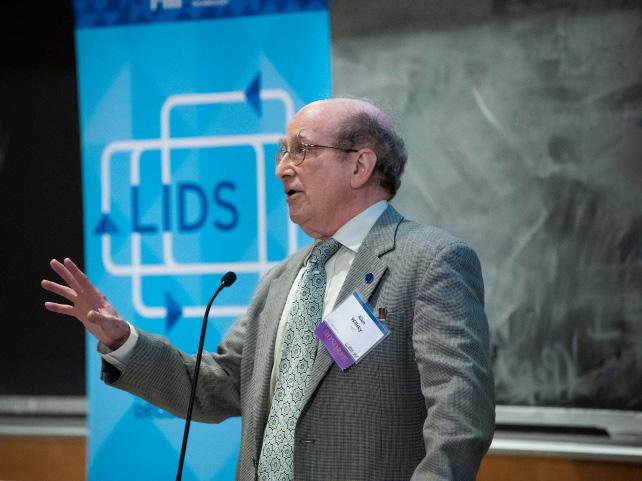
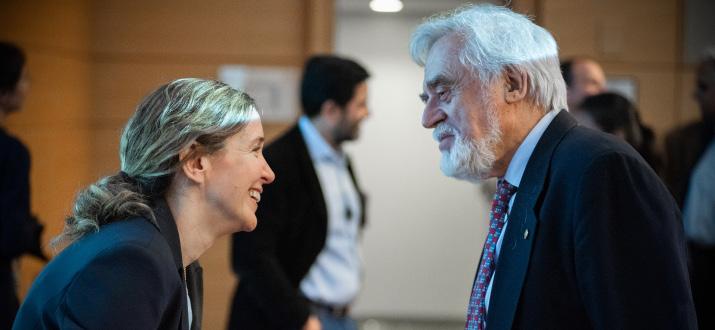
LIDS Celebrates 80 Years
In November 2019 LIDS marked its 80th anniversary with LIDS@80: A Celebration — a two-day event that explored the past, present, and future of the information and decision sciences. Welcoming over 400 people from around the world, LIDS@80 brought together LIDS alumni and students, members of the MIT community, friends of the lab from academia, government, and industry, and many others working in the field. Together with an impressive set of speakers, the celebration was an inspiring reminder of the lab’s tremendous history and impact, as well as the many ways LIDS is poised to continue leading the field.
The LIDS@80 technical program consisted of four sessions: Systems, Optimization, and Control; Communications, Information Theory, and Networks; From Data to Inference and Machine Learning; and Transitions. The event also held a strong focus on community, providing opportunities for connection between current students and alumni, as well as honoring major figures in the lab’s history, and the field: Michael Athans (in absentia), Dimitri Bertsekas, G. David Forney, Jr., Robert Gallager, Sanjoy Mitter, and Alan Willsky.
“This is really a tremendous opportunity to
celebrate the LIDS community and its rich technical accomplishments,” said Anantha Chandrasakan, Dean of the MIT School of Engineering, as part of the event’s opening remarks. “It is also a great opportunity to look forward to the amazing innovations expected from the LIDS community.”
These sentiments were echoed by Dean Dan Huttenlocher of the Stephen A. Schwarzman College of Computing, which LIDS joined in January 2020. “With regards to LIDS and the intellectual fabric of the world today I think the time couldn’t be more exciting,” said Huttenlocher, whose vision for the lab’s future is expansive: “If you think about what’s on the horizon for automated decision making, the breadth of real-world impact of the kind of work that goes on in LIDS is, I think, unprecedented in the 80-year history of the lab.”
Launched in 1940, LIDS was originally called the Servomechanisms Laboratory. Much of the lab’s early work centered on WWII and post-war military applications including the celebrated Whirlwind Project, which contributed to the development of random access, magnetic core memory. The en-
suing decades saw continued pioneering work in theory, education, and research, including major advances in feedback control, groundbreaking contributions to modern control theory and robust control, and the publication of landmark textbooks, such as Optimal Control (Athans and Falb), The Analysis of Feedback Systems (Willems), and Neurodynamic Programming (Bertsekas and Tsitsiklis). These decades also saw two more name changes for the lab, each reflecting a broadening of the LIDS research agenda to meet the needs of the time: The lab became the Electronic Systems Laboratory in 1959 and the Laboratory for Information and Decision Systems in 1978.
LIDS director John Tsitsiklis (EECS) highlighted these key moments and drivers of the lab’s evolution in his remarks, noting that LIDS research, though deeply theoretical, often finds its inspiration in real-world challenges. He described this combination of theory and application, and its frequently cross-cutting — sometimes unexpected — impact, as the “magic” of LIDS research. Elegant models, he explained, “have this property that many many years after they are developed they end up getting used in contexts that you would never have imagined when you first worked on them.”
This timeless quality of the research and advances produced by LIDS emerged as a theme of the event, with presenters highlighting the
lab’s significant influence across a wide range of fields, including the evolution of modern communication networks, the algorithms that drive autonomous vehicles and on-line recommendation systems, the development of digital computing, advances in mapping gene regulatory networks, and much more.
“LIDS has been around for eighty years because it reinvents itself as opportunities emerge over time, maintaining rigor, but continuing to look at where the applications are and how we can make a difference,” said IDSS director, former interim LIDS director, and longtime LIDS faculty member Munther Dahleh (EECS).
This capacity for reinvention was viewed as further testament to the power of LIDSstyle thinking — an approach that does not produce traditional deliverables, but rather “foundational research and the next generation of leaders in the field.” Asu Ozdaglar, a former LIDS director and current EECS department head, spoke of this idea in her presentation, noting that LIDS students are not just getting a degree, but are “learning tools that allow them to apply [their knowledge] to whatever problem they find interesting in a systematic and insightful way.”
The lab’s enduring success was also credited to the character and cohesiveness of the LIDS community — another theme celebrated
throughout the event by both speakers and attendees. Many expressed heartfelt appreciation of the lab’s welcoming spirit, intellectual freedom, and deeply accomplished and generous community. G. David Forney, an event honoree, mentioned this in his remarks, calling LIDS “a high-powered place” but also “a kind and gentle place.” Prof. Caroline Uhler (EECS), who joined MIT and LIDS in 2015, offered a similar reflection when describing her first impressions of the lab: “Just being in LIDS you could really feel what a supportive place it is, which allows you to do the best research you could possibly do.”
These ideas were also emphasized by longtime faculty members Alan Willsky, a former LIDS director and event honoree, and Tsitsiklis, who is also a LIDS alum. “LIDS is an amazing place,” said Willsky, “where seminal contributions are produced at a staggering clip from an extraordinary set of people — demonstrating clearly what a small intellectually cohesive lab can do.” Tsitsiklis, drawing on decades of experience in the lab, put this thought even more succinctly: “The best deliverable LIDS has created is the people in this room, and our community. That’s the most important product of the lab.”
Please visit lids80.lids.mit.edu for additional event photos, videos, and more.

NEW LIDS FACULTY
ASHIA WILSON
Ashia’s research focuses on the methodological foundations and theory of various topics in machine learning. She is interested in developing frameworks for algorithmic assessment and providing rigorous guarantees for algorithmic performance. She received her BA from Harvard University with a concentration in applied mathematics and a minor in philosophy, and a PhD from UC Berkeley in statistics. She most recently held a postdoctoral position in the machine learning group at Microsoft Research, New England. Ashia joined LIDS and MIT in January 2021 as an Assistant Professor in EECS.

SAURABH AMIN
Saurabh’s research interests are in infrastructure networks, applied game theory, optimization in networks, and cyberphysical systems. He received the B.Tech. (2002) in Civil Engineering from the Indian Institute of Technology at Roorkee, M.S. (2004) in Transportation Engineering from the University of Texas at Austin, and Ph.D. (2011) in Systems Engineering from the University of California at Berkeley. He has been a recipient of Solomon Buchsbaum AT&T Research Award (2012), NSF CAREER Award (2015), Google Faculty Research Award (2015), Siebel Energy Institute Award (2015), and Ole Madsen Mentoring Award (2020). He joined MIT and the Department of Civil and Environmental Engineering in 2012 where he is currently an Associate Professor.
In Remembrance of Michael Athans (1937-2020)
MIT electrical engineering and computer science Professor Emeritus Michael Athans died peacefully on May 26, 2020 at his home in Clearwater, Florida, at the age of 83.
Athans was born in Drama, Macedonia, Greece in 1937. He came to the United States in 1954 for a one-year exchange visit under the auspices of the American Field Service (AFS), and attended the Tamalpais High School in Mill Valley, California. His year in the AFS was a defining one. He fell in love with America during this time and decided to stay in the United States when his AFS year was over. He then went on to attend the University of California at Berkeley from 1955 to 1961, where he received his BS in 1958 (with highest honors), MS in 1959, and PhD in control in 1961.
Athans had a remarkable career in academia. A pioneer in the field of control theory, he helped shape modern control theory and spearheaded, together with students and colleagues, the field of multivariable control system design and the field of robust control. These fundamental contributions were made in the course of Athans’s long and deeply accomplished tenure at MIT, as a member of the technical staff at Lincoln Laboratory from 1961 to 1964, and as a Department of Electrical Engineering and
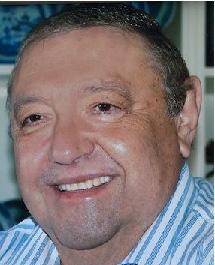
Computer Science faculty member from 1964 to 1998.
According to John Tsitsiklis, the Clarence J. Lebel Professor of Electrical Engineering and Computer Science, who was also a student of Athans: “It is hard to overstate the impact and influence Mike had on the field of systems control theory. He led the development of central methodologies. He broadened the scope of the field. And he amplified his impact by sup -
porting and nurturing a whole generation of researchers. I feel very fortunate to have been one of his students.”
He further influenced the field as a transformative director of the Laboratory for Information and Decision Systems (LIDS), which was called the Electronic Systems Laboratory when Athans took the helm in 1974. He recognized the promise of the systems and control field in a vast array of domains, the need for new methodologies geared toward large-scale systems, and the confluence of control and communications. In this spirit, Athans changed the lab’s name to LIDS in 1978, which remains the lab’s name today. This forward-looking choice reflected the lab’s intellectual expansion and the embrace of new domains, ranging from transportation to energy to economics and more.
Key to this expansion was groundbreaking work by Athans and colleagues that made multivariable control design into a practical engineering methodology that could be applied to complex, large-scale, distributed systems — which Athans saw, correctly, as the future of system design. This adaptation of control methodology, combined with ideas from communications, networks, optimization, and control, helped chart the lab’s course, and was a central achievement of Athans’s intellectual and professional leadership during his tenure as director, which ended in 1981.
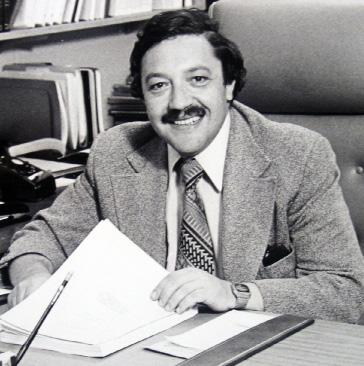
Athans was not only a highly-accomplished researcher, but also an award-winning and dedicated educator: In what was the aspect of his work he cherished most, he mentored and supervised the theses of more than 100 graduate students over the course of his career; he developed a course on modern control theory, producing nearly 70 videotaped lessons that were critical to the training of hundreds of practicing engineers; and he co-authored three books, most notably “Optimal Control” (with Peter Falb), a foundational text that influenced
generations of students. In addition, he transitioned his research by co-founding, in 1978, ALPHATECH in Burlington, Massachusetts, where he served as chair of the board of directors and chief scientific consultant.
Described by friends as a vital force, Athans guided his students with care and often touched the lives of his friends and colleagues in profound ways. “Mike was immensely important to me, especially at the start of my time on the faculty at MIT,” says Alan Willsky, the Edwin Sibley Webster Professor of Electrical Engineering and Computer Science and a former LIDS director. “He was exceptionally generous, providing me with travel support and opportunities to lead research programs early in my career.”
Willsky’s remembrance of Athans as a strong, generous presence has been echoed by many colleagues and former students, including Nils Sandell PhD ’74, who says “Michael was my PhD supervisor, ran LIDS when I was an MIT faculty member, and he was the founding chairman of ALPHATECH, where I was president. He was a great teacher with a highly entrepreneurial spirit and was a steadfast friend. I will miss him greatly.”
Upon retirement, Athans moved to Lisbon, Portugal, for 15 years and received a honoris causa doctorate from the Universidade Técnica de Lisboa in 2011. Upon returning from
Portugal, Athans chose to live in Clearwater, Florida to be near his sons Brett and Sean, as well as his grandson Michael.
Athans was predeceased by his son John Athans Spodick. He is survived by his loving partner Lena Corsentino; sons Stephen Athans Spodick and his wife Kathleen of Holden, Massachusetts, Brett Athans of St. Petersburg, Florida, Sean Athans of St. Pete Beach, Florida, and Stavros Valavanis, of New York, New York; as well as four grandchildren — Ryan and Christopher Spodick of Burlington, Vermont, Nicholas Spodick of Holden, Massachusetts, and Michael Athans of St. Petersburg, Florida. He is also survived by his brother Sotiris Athanasiadis and wife Sofia of Thessaloniki, Greece, and their two children, Chrysa and Yannis.
He will be remembered for his leadership, kindness, sharp wit, strong will, and stories of growing up in Greece.
LIDS hosted a virtual memorial service for Athans on July 9, 2020. A recording of the service, along with photos and other remembrances, can be found on the Michael Athans memorial website: https://athansmemorial.lids.mit.edu/.
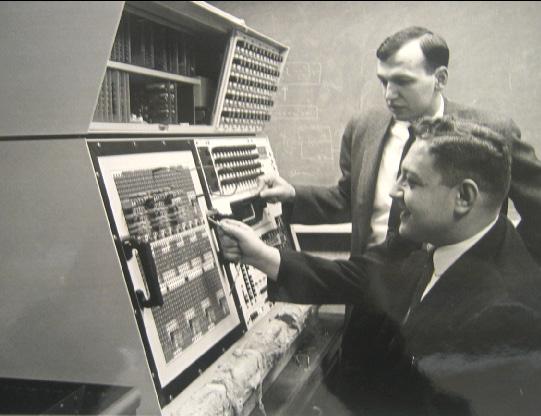
LIDS COMMUNITY
While the 2019-2020 academic year was like no other, the LIDS community remained engaged and vibrant, with our usual slate of terrific in-person events in the fall and early spring, and a switch to virtual events closing out the year.
Our students and postdocs continued to play a key role in organizing these activities. Through their work on different committees, they organized social events for the community including lunches, Friday afternoon snacks, and virtual socials; the popular weekly LIDS & Stats Tea Talks (a series of informal research presentations); as well as mentoring events, including sessions on the current academic job market, and a series of job/chalk talks for postdocs to get feedback on their presentations.
Our thanks to all of the students, faculty, and staff who made these a success! We’d like to thank here, in particular, the student and postdoc organizers.
LIDS Social Committee
Sarah Cen
Xinzhe (Roger) Fu
Maryann Rui
Chandler Squires
LIDS & Stats Tea Talks Committee
Alireza Fallah
Julia Gaudio
David Rosen
Sohil Shah
Chulhee Yun
LIDS Mentoring Committee
Alireza Fallah
Victor Gonzalez
Arjun Gupta
Ifueko Nosakhare Igbinedion
Michail Ouroutzoglou
Sarath Pattathil
Soumya Sudhakar
Vasileios Tzoumas
LIDS Postdoc Committee
Farzan Farnia
Fan Jiang
Hajir Roozbehani
Silun Zhang
COVID-RELATED RESEARCH
As the MIT community rose to the challenges of the pandemic, it used the exceptional talent and creativity in its ranks to start solving the complex problems Covid-19 presented, from supply chain management to public health messaging. Many in the community did this the way they know best — through research. The LIDS community was no exception.
Lab members have been leading and participating in a range of Covid-related research projects including:
• Novel AI techniques to improve medical response and slow pandemic spread (Saurabh Amin, Munther Dahleh, Patrick Jaillet, and Asu Ozdaglar)
• Modeling the effects of targeted lockdowns on the economy and public health (Asu Ozdaglar)
• Privacy-preserving contact tracing (Devavrat Shah)
• City-level decision support for institutional management to mitigate the spread of Covid-19 (Cathy Wu)
• Participation throughout the lab by students, postdocs, and faculty in IDSS’s Isolat project, providing systematic and rigorous analyses of data associated with the Covid-19 pandemic.

